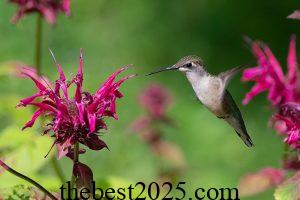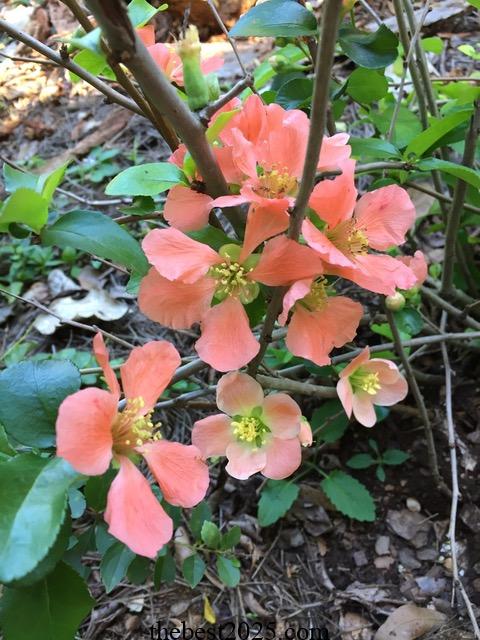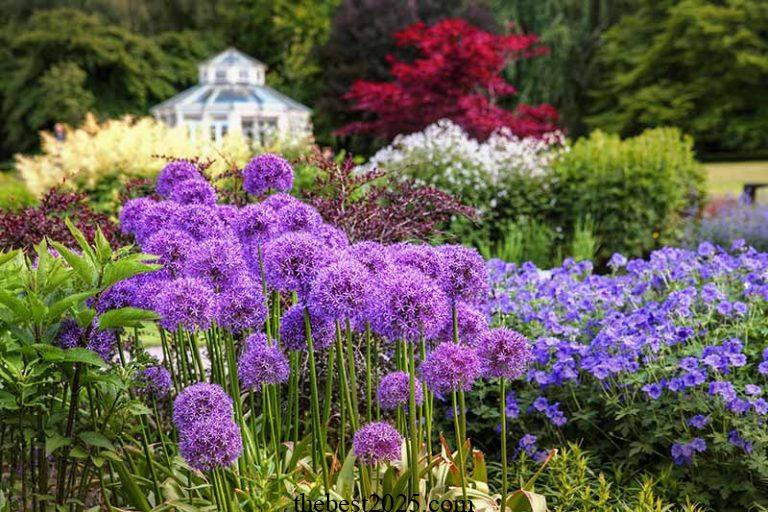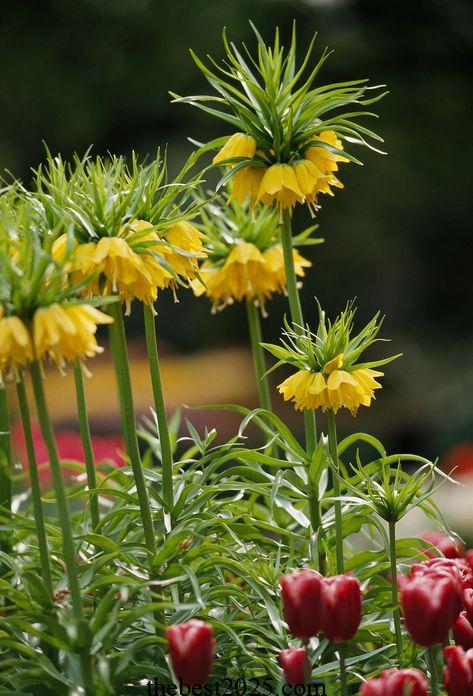13 Flowering Plants Rabbits Will Leave Alone
When it comes to creating a flourishing garden, dealing with pest-related issues is often a top concern for many gardeners. One common pest that can wreak havoc on your beautiful blooms is the humble rabbit. These furry creatures have a penchant for nibbling on plants, which can leave your garden looking less than picturesque. However, fear not, for we’ve curated a list of 13 flowering plants that rabbits will leave alone. These resilient blooms not only add color and vibrancy to your garden but also act as a natural deterrent for these furry intruders.
1. Lavender (Lavandula)

Lavandula, commonly known as lavender, is a fragrant and visually appealing flowering plant that boasts a host of benefits for your garden. Not only does its aromatic scent act as a natural repellent for rabbits, but it also attracts pollinators like bees and butterflies. With its slender purple spikes and silvery-green foliage, lavender adds an elegant touch to any garden bed.
2. Foxglove (Digitalis purpurea)

With its tall spires of tubular flowers, the foxglove is a stunning addition to any garden. Surprisingly, rabbits tend to steer clear of this plant, making it a safe choice for your garden. However, it’s important to note that foxglove can be toxic to humans and pets if ingested, so exercise caution when planting it in areas frequented by children or animals.
3. Bleeding Heart (Dicentra spectabilis)

The bleeding heart is a delicate and captivating perennial that features unique heart-shaped blossoms. Despite its charming appearance, rabbits tend to avoid feasting on this plant. Its distinctive flowers, which dangle gracefully from arching stems, make it a standout addition to shaded areas in your garden.
4. Catmint (Nepeta faassenii)

Catmint, as the name suggests, is a favorite among feline friends, but rabbits tend to give it a wide berth. This low-maintenance perennial boasts spikes of lavender-blue flowers that not only add a pop of color but also release a fragrance that deters rabbits. It’s a win-win for your garden and your cat!
5. Daffodils (Narcissus)

Daffodils, with their vibrant trumpet-shaped blooms, are a classic springtime favorite. The good news is that rabbits typically avoid munching on these cheerful flowers. Planting daffodils not only adds a burst of color to your garden but also signals the arrival of spring.
6. Columbine (Aquilegia)
The columbine is a graceful perennial known for its distinctive spurred flowers and delicate foliage. Surprisingly, rabbits tend to bypass this charming plant. Its unique blooms, available in an array of colors, make it a versatile addition to both shade and sun gardens.
7. Bee Balm (Monarda)
Bee balm, also known as monarda, is a pollinator’s paradise. Its vibrant, tubular flowers attract bees, butterflies, and hummingbirds, while its aromatic foliage repels rabbits. This hardy perennial is not only visually appealing but also a beneficial addition to your garden’s ecosystem.
8. Yarrow (Achillea millefolium)
Yarrow is a versatile herbaceous perennial known for its feathery foliage and flat-topped flower clusters. Rabbits tend to avoid this plant, making it a valuable addition to your garden. Yarrow comes in a range of colors, from white to pink to yellow, allowing for a variety of design possibilities.
9. Peony (Paeonia)
The peony, with its large, extravagant blooms, is a showstopper in any garden. Fortunately, rabbits are not typically drawn to this perennial beauty. Planting peonies not only brings opulence to your garden but also ensures a rabbit-resistant environment.
10. Salvia (Salvia spp.)
Salvias are a diverse group of plants known for their vibrant, spiky blooms and aromatic foliage. These resilient perennials are not a favored snack for rabbits, making them a reliable choice for your garden. With a wide range of colors and sizes available, there’s a salvia for every garden style.
11. Siberian Iris (Iris sibirica)
The Siberian iris is an elegant perennial that adds a touch of sophistication to any garden. Its graceful, iris-like flowers and slender foliage are seldom on a rabbit’s menu. Planting Siberian iris ensures that your garden remains both refined and rabbit-resistant.
12. Allium (Allium spp.)
Alliums, commonly known as ornamental onions, are a unique and visually striking addition to any garden. Rabbits tend to avoid these pungent plants, allowing them to thrive undisturbed. With their globe-like flower heads, alliums add a touch of whimsy and intrigue to your garden.
13. Ferns (Various Species)
While not flowering plants in the traditional sense, ferns offer lush, green foliage that can serve as a lovely backdrop for your garden. These leafy wonders are not typically on a rabbit’s menu, making them a reliable choice for adding texture and depth to your garden beds.
Frequently Asked Questions (FAQ)
Q1: Can these plants be grown in containers?
A1: Yes, many of the mentioned plants can be grown in containers. However, ensure that the container is large enough to accommodate the plant’s root system, and provide proper drainage to prevent waterlogging.
Q2: Do these plants require special care or maintenance?
A2: While these plants are generally low-maintenance, it’s essential to provide them with the appropriate growing conditions, including sunlight, water, and soil type. Regular monitoring for pests and diseases is also recommended.
Q3: Are there any companion plants that can further deter rabbits?
A3: Yes, companion plants like marigolds, onions, and garlic can be strategically planted to enhance rabbit resistance in your garden.
Q4: Can I mix these plants with others for a diverse garden?
A4: Absolutely! Combining these rabbit-resistant plants with other compatible species can create a diverse and visually appealing garden that also deters pests.
tag
- chicken feed
- how to Keep Chickens Off Your Porch
- How to grow oyster mushrooms at home
- Growing Kale in Pots


0 Comments